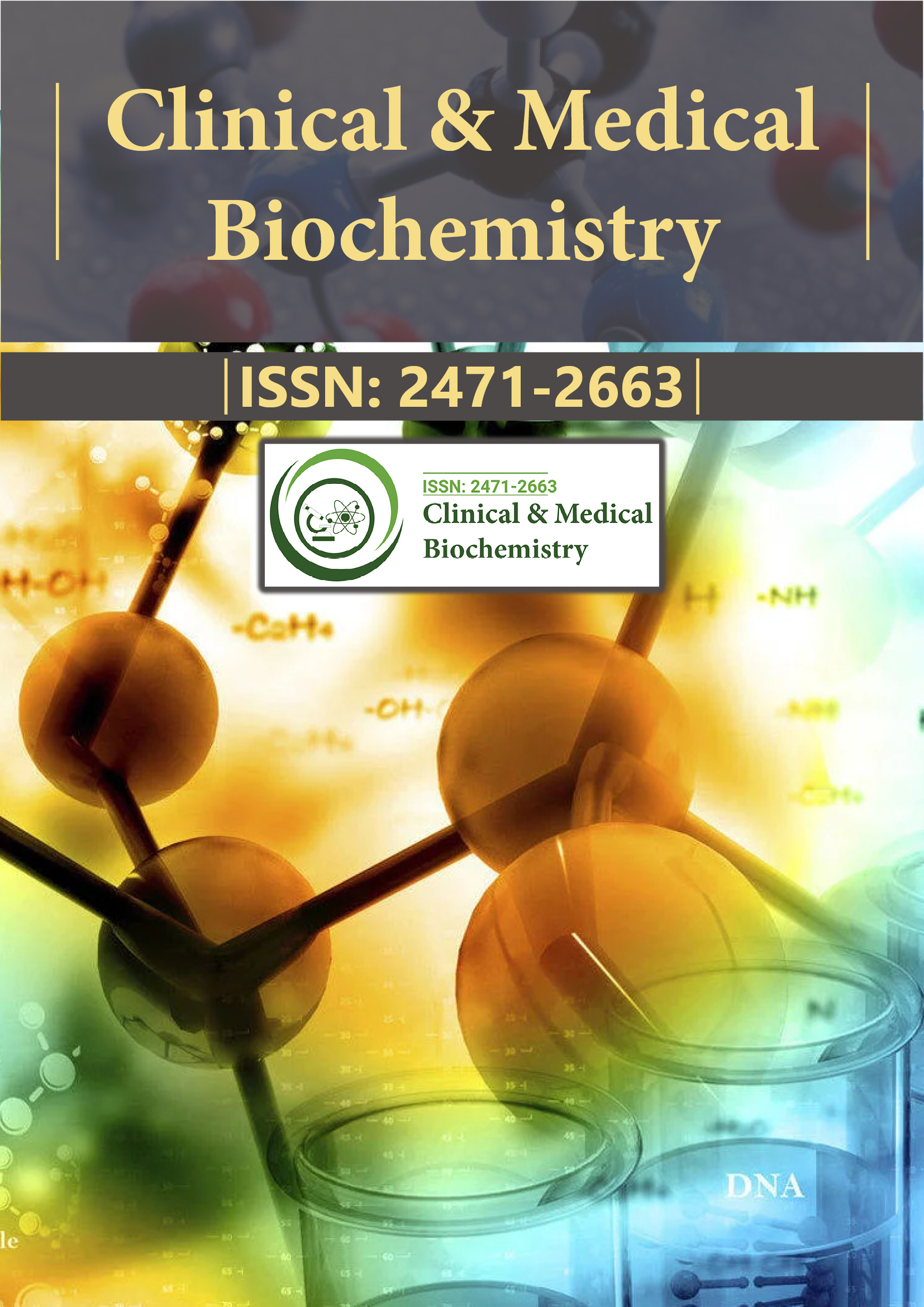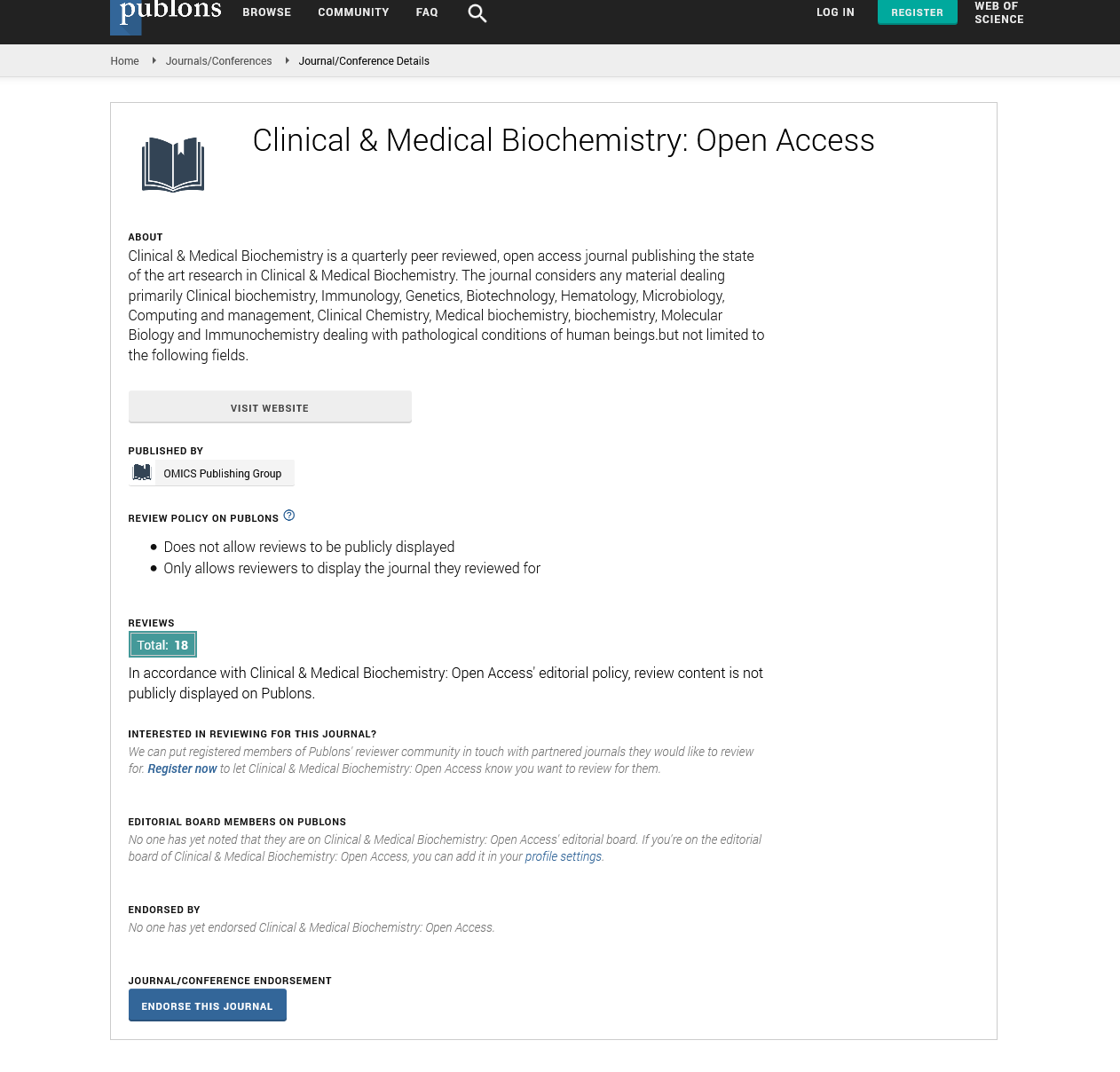Indexed In
- RefSeek
- Directory of Research Journal Indexing (DRJI)
- Hamdard University
- EBSCO A-Z
- OCLC- WorldCat
- Scholarsteer
- Publons
- Euro Pub
- Google Scholar
Useful Links
Share This Page
Journal Flyer

Open Access Journals
- Agri and Aquaculture
- Biochemistry
- Bioinformatics & Systems Biology
- Business & Management
- Chemistry
- Clinical Sciences
- Engineering
- Food & Nutrition
- General Science
- Genetics & Molecular Biology
- Immunology & Microbiology
- Medical Sciences
- Neuroscience & Psychology
- Nursing & Health Care
- Pharmaceutical Sciences
Perspective - (2024) Volume 10, Issue 1
The Influence of Toxicology Research on the Atmosphere and Health Administration
Seo Yeon*Received: 22-Dec-2023, Manuscript No. CMBO-24-24550; Editor assigned: 26-Dec-2023, Pre QC No. CMBO-24-24550 (PQ); Reviewed: 10-Jan-2024, QC No. CMBO-24-24550; Revised: 17-Jan-2024, Manuscript No. CMBO-24-24550 (R); Published: 24-Jan-2024, DOI: 10.35841/2471-2663.23.10.211
Description
Toxicology is one of the key fields within the broad field of science that helps to clarify the complex relationship between dangerous substances and living things. This specialized field delves into the study of toxins, poisons, and the myriad of chemical agents that can disrupt normal physiological processes. As we start on a drive through the excellent area of toxicology, we explore the pivotal role it plays in safeguarding public health, environmental well-being, and the advancement of scientific knowledge. Toxicology, often operating behind the scenes, is a multidisciplinary science that intersects with various branches of biology, chemistry, and medicine. Its primary focus is the identification, characterization, and considerate of toxic agents, ranging from naturally occurring toxins to synthetic chemicals introduced into our environment. The ultimate goal is not only to recognize and analyze these substances but also to comprehend their potential impact on human health, wildlife, and ecosystems.
In the laboratory setting, toxicologists employ a diverse array of techniques to assess the toxicity of substances. Bioassays, cell cultures, and animal models are commonly utilized to explore the effects of toxins at different levels of biological complexity. These experimental approaches allow researchers to observe and measure responses to toxic exposures, providing valuable data that informs risk assessments and regulatory decisions. One of the fundamental aspects of toxicology is the evaluation of doseresponse relationships, elucidating how the severity of toxic effects correlates with the amount of exposure. Considerate the dose-response relationship is essential for establishing safe exposure limits and guiding regulatory agencies in setting standards to protect human health and the environment. Toxicologists carefully analyze data to derive dose-response curves, enabling them to identify thresholds beyond which adverse effects become more pronounced.
In the field of occupational toxicology, professionals examine the potential hazards posed by chemicals in workplaces. From manufacturing facilities to agricultural settings, various industries handle substances that may pose health risks to workers. Occupational toxicologists assess exposure levels, implement safety measures, and recommend protective equipment to mitigate potential harm. By identifying and controlling workplace hazards, these experts contribute to creating safer working environments. Environmental toxicology explores the impact of pollutants on ecosystems, wildlife, and biodiversity. From pesticides and industrial waste to air and water pollutants, the environmental landscape is rife with substances that can disrupt ecological balance. Toxicologists in this field investigate the fate and transport of pollutants, studying their effects on aquatic and terrestrial organisms. Through careful observation and experimentation, they contribute valuable insights into the preservation of ecosystems and the conservation of species.
Pharmaceutical toxicology is another important branch that evaluates the safety of medications and therapeutic agents. Before new drugs are introduced to the market, extensive testing is conducted to assess their potential side effects and toxicity. Pharmaceutical toxicologists play a vital role in ensuring that medications are both effective and safe for use. Their work involves predicting potential adverse effects, considering the mechanisms of toxicity, and providing recommendations for safe dosage regimens. Analytical toxicology focuses on the identification and quantification of toxic substances in various matrices, such as blood, urine, and tissues. This branch of toxicology employs advanced analytical techniques, including chromatography and mass spectrometry, to detect and measure trace amounts of substances. Analytical toxicologists play a important role in forensic investigations, identifying the presence of toxins in cases of poisoning or substance abuse. Their work is instrumental in legal proceedings and law enforcement efforts.
Toxicology is not limited to the laboratory; it extends its influence into public health and policy-making. Risk assessment, a key component of toxicological analysis, involves evaluating the potential risks associated with exposure to specific substances. This information guides regulatory agencies in developing guidelines and regulations to protect public health. From setting water quality standards to regulating pesticide use, toxicological assessments form the basis for informed decision-making at local, national, and international levels. In recent years, advances in toxicology have been driven by innovations in technology and the integration of computational approaches. Computational toxicology, a burgeoning field, leverages computer models and simulations to predict the toxicity of substances. These models advance the screening of large chemical libraries, identifying potential hazards and prioritizing substances for further testing. The integration of computational tools enhances the efficiency of toxicological research and contributes to the development of alternatives to traditional animal testing.
Conclusion
In conclusion, toxicology stands as a dynamic and vital discipline at the intersection of science, health, and environmental protection. From the laboratory bench to the policy table, toxicologists play an important role in accepting and mitigating the impact of harmful substances on living organisms and ecosystems. By employing a diverse set of techniques, from analytical methods to advanced computational models, toxicology navigates the complexities of toxic agents and their potential risks. As we continue to face new challenges in a rapidly changing world, the contributions of toxicology remain indispensable in safeguarding our well-being and preserving the health of the planet.
Citation: Yeon S (2024) The Influence of Toxicology Research on the Atmosphere and Health Administration. Clin Med Bio Chem. 10:211.
Copyright: © 2024 Yeon S. This is an open-access article distributed under the terms of the Creative Commons Attribution License, which permits unrestricted use, distribution, and reproduction in any medium, provided the original author and source are credited.

